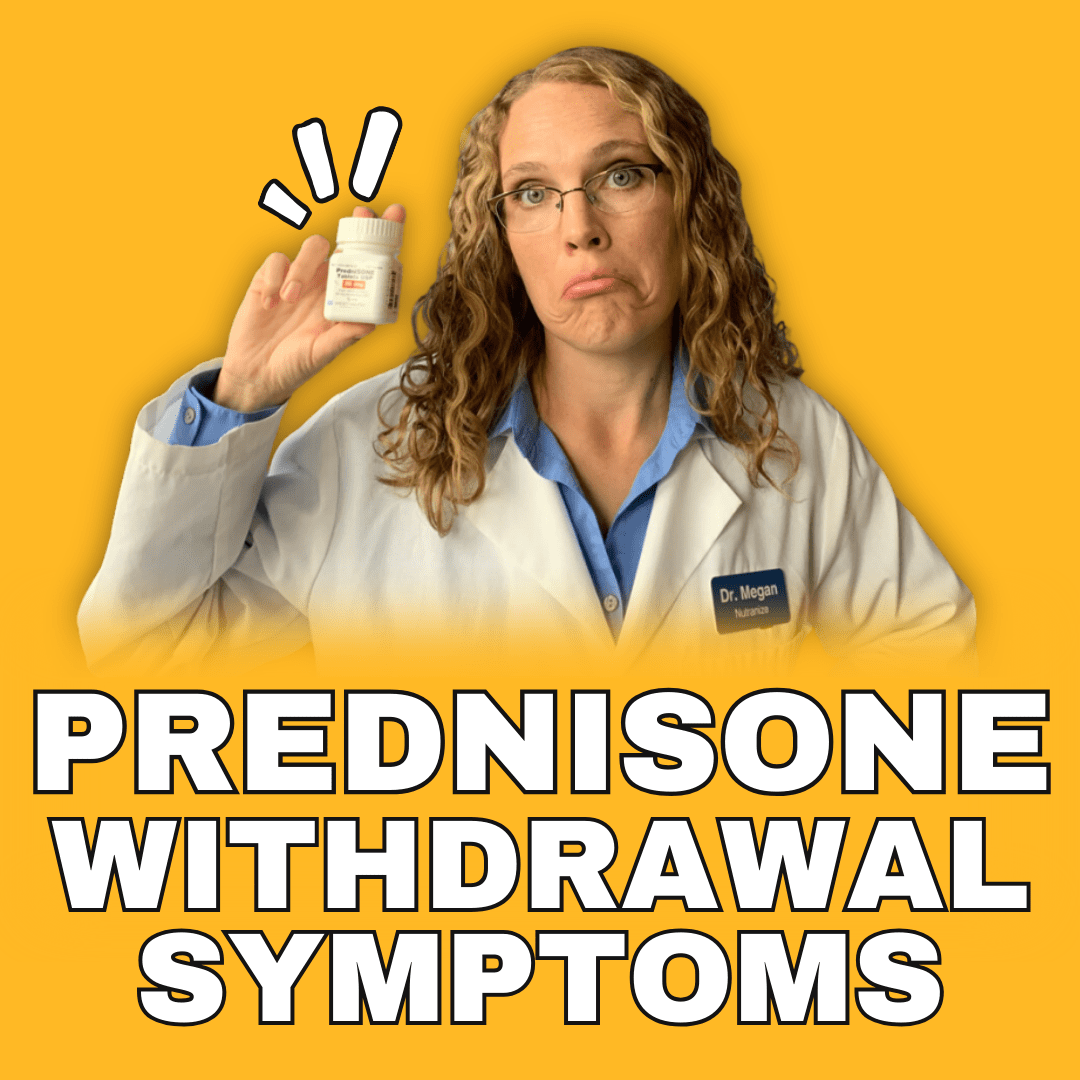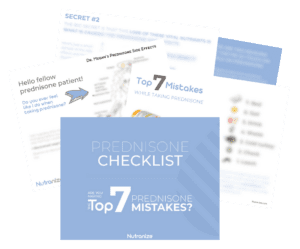Prednisone Withdrawal Side Effects – Coming off prednisone side effects?

Prednisone withdrawal is a real and challenging experience for many individuals. In this article, we will explore the symptoms of prednisone withdrawal and its potential risks. We will also discuss remedies and strategies to help cope with prednisone withdrawal.
Have you ever stopped prednisone early? If so, how did it go for you?
Watch now!
The Reality of Prednisone Withdrawal
Prednisone withdrawal is a genuine condition that affects individuals who have been taking prednisone medication for a prolonged period. It is essential to understand the symptoms and risks associated with this withdrawal to seek appropriate support and guidance.
Common Symptoms of Prednisone Withdrawal
Prednisone withdrawal can result in various symptoms, including fatigue, loss of energy, low blood sugar, reduced strength, nausea, muscle or joint pain, sleep disturbances, and weight changes. These symptoms can be debilitating and impact daily functioning.
According to a study you might experience;
“Fever, anorexia, nausea, lethargy, malaise, arthralgias, desquamation of the skin, weakness, and weight loss occurring, with highly variable grading, in patients undergoing steroid withdrawal also in the presence of biochemical evidence of hypothalamus-pituitary-adrenal (HPA) system integrity. Other symptoms mentioned in the literature but occurring less commonly include abdominal pain, vomiting, postural hypotension, hyponatremia, and hyperkalemia.”
For children who took prednisone, they experience;
Malaise (unwell), hyposthenia (loss of strength), arthralgias/myalgias (joint and muscle pain), lethargy (tired), and anorexia (don’t want to eat). Objective signs including weight loss, hypotension (low blood pressure), and skin desquamation were mainly observed in the dexamethasone group.
Risks of Prednisone Withdrawal
While prednisone withdrawal is not life-threatening in most cases, it can lead to complications such as adrenal insufficiency. Adrenal insufficiency occurs when the body is unable to produce enough cortisol, leading to potential medical emergencies. It is crucial to recognize the risks and seek medical attention if necessary.
Coping Strategies and Remedies for Prednisone Withdrawal
What helps with prednisone withdrawal symptoms?
- Consult your doctor: If you suspect prednisone withdrawal, consult your healthcare provider for a proper evaluation and guidance on managing the symptoms.
- Reintroduction of prednisone: In some cases, your doctor may recommend restarting prednisone temporarily to alleviate withdrawal symptoms. However, this should only be done under medical supervision.
- Nutritional support: Prednisone can deplete certain nutrients in the body. Consider incorporating a balanced diet and possibly supplements (with medical approval) to support your overall health during withdrawal.
- Self-care practices: Engage in stress-reducing techniques such as meditation, mindfulness, and gentle exercise to help manage symptoms and promote overall well-being during withdrawal.
- Seek support: Connect with others who have experienced prednisone withdrawal through support groups or online communities. Sharing experiences and coping strategies can provide valuable support during this challenging time.
- Supplements to help with prednisone withdrawal
Duration and Individual Variations
The duration of prednisone withdrawal can vary greatly among individuals. Some may experience symptoms for a few days, while others may endure them for weeks or even months. It is crucial to be patient and seek medical advice if symptoms persist or worsen.
Conclusion
Prednisone withdrawal is a real and challenging experience that individuals may face after prolonged prednisone use. Recognizing the symptoms, understanding the risks, and implementing coping strategies can help navigate this process more effectively. Remember to consult with your healthcare provider and seek appropriate support to ensure the best possible outcome during prednisone withdrawal.
Related Posts
-
Adrenal Support for Prednisone Tapering
Adrenal Support in Prednisone Recently, a Prednisone Warrior asked me about adrenal support while tapering:... -
How to Cope with Prednisone Withdrawal
Prednisone is a corticosteroid that is commonly prescribed to reduce inflammation and swelling. While taking... -
Prednisone Withdrawal as Dangerous as the Treatment?
Desperate Question: Is Prednisone Withdrawal Real? You might be wondering whether prednisone withdrawal is real.... -
Steroid Withdrawal from Flonase – Prednisone Warrior David
This article is part of a series of stories of Prednisone Warriors sharing prednisone side effects story. David explains his...


